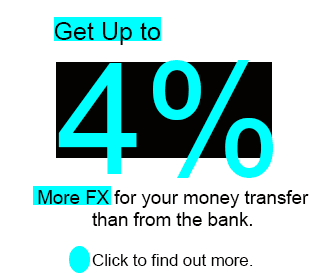UBS Favours Pound Sterling, Despite Looming Election


Above: Sunak on the campaign trail. Analysts say the Conservatives’ so-called quadruple lock for pensioners and mandatory national youth service draw questions over their long-standing reputation for fiscal responsibility. Picture by Edward Massey / CCHQ.
Foreign exchange analysts at UBS retain a constructive bias on the British Pound despite the recent announcement that a General Election will take place on July 04.
“We still favour GBP longer term as election looms,” says Shahab Jalinoos, Head of G10 FX Strategy at UBS.
UK political risk has weighed on the Pound in recent decades, thanks to the post-Blair Labour Party’s lurch leftward and the Conservatives bringing destabilising referendums on Scottish Independence and European Union membership.
But, the next General Election occurs in the context of a settled Brexit landscape and a centrist Labour Party holding a 20-point lead in the polls.
“Taking the politics in isolation, the bottom line is that a win for the opposition Labour Party is so fully priced in that pulling forward the election a few months is seen as posing very limited extra risk to GBP,” says Jalinoos.
Currency analysts note the cost of insuring against foreign exchange volatility around the election date remains relatively contained, indicating investors are relatively sanguine about the outcome.
Jalinoos explains this is because the risks of a major spending splurge by the Labour Party have diminished of late as the party has backtracked on some of its previous commitments, suggesting a committment to fiscal orthodoxy.
On the other hand, the Conservatives have announced a ‘quadruple lock’ for pensioners that will protect them from paying more tax on parts of their pensions while also announcing a youth national service. These will be costly measures and cast a potential incoming Labour government in a more market-friendly light.
“Certainly, the old simplistic approach to UK politics (and GBP direction) of assuming the Conservatives will be fiscally prudent and that Labour poses a bigger threat to both the budget and to GBP doesn’t obviously apply,” says Jalinoos.
The election announcement came alongside a stronger-than-expected inflation print, which eliminated expectations for a June rate cut at the Bank of England. Analysts argue that the interest rate story will ultimately determine the direction of the Pound in the coming weeks and months.

The Pound to Euro exchange rate has risen above 1.17 and is seen consolidating close to 1.1750 as it carves out a higher range for itself on the belief the Bank of England will cut later and on fewer occasions than the European Central Bank. The Pound to Dollar exchange rate rose back to 1.28 before retreating to 1.27 at the time of writing, owing to the broader USD recovery, which is also driven by interest rate developments.
UBS strategists have been bullish on GBP’s prospects for some time, and Jalinoos says he is “not minded” to lean against recent strength, particularly against the Euro.
Nevertheless, he warns the main risk to the constructive GBP outlook would be fiscal announcements from Labour either before or after an election that are seen as unworkable and risky for budget dynamics.
“This is clearly not our core expectation but if this were to transpire then long-standing market narratives about the vulnerability of GBP to relatively fragile trade and budget positions could come to the fore again,” Jalinoos explains.
Source link





